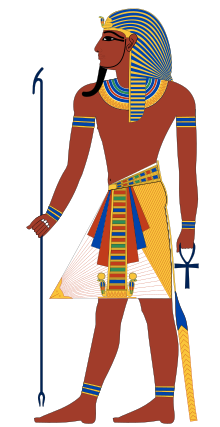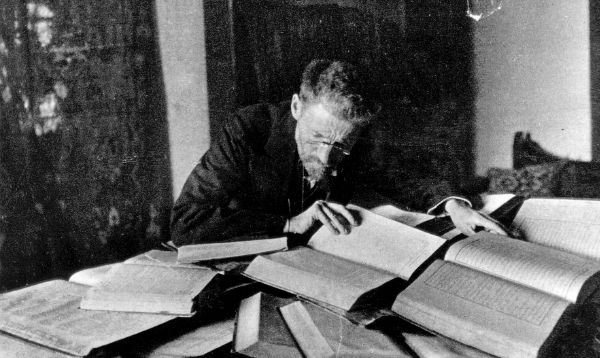פָּרָשַׁת בֹּא
פָּרָשַׁת הַשָּׁבוּעַ מַתְחִילָה בְּהוֹדָעָתוֹ שֶׁל הָקָּבָּ"ה לְמֹשֶׁה כִּי עָלָיו לָלֶכֶת אֶל פַּרְעֹה וּלְהַכּוֹת אוֹתוֹ וְאֶת עַמּוֹ בַּעֲשֶׂרֶת הַמַּכּוֹת. יוֹתֵר מְעַנְיֶינֶת הִיא הַסִּיבָּה לַמַּכּוֹת הָאֵלֶּה, שֶׁנָּפְלוּ (נִיחְתוּ) עַל מִצְרַיִם, שֶׁלֹּא בְּאַשְׁמַת פַּרְעֹה מֵאַחַר וְהָקָּבָּ"ה הוּא שֶׁהִקְשִׁיחַ אֶת לִיבּוֹ. אִם כֵּן- מַהִי הַסִּיבָּה? כְּדֵי שֶׁבְּנֵי יִשְׂרָאֵל, וְעַם יִשְׂרָאֵל בְּעָתִיד, יַאֲמִינוּ בְּכוֹחוֹ שֶׁל הָקָּבָּ"ה.
אֲבָל בְּנֵי יִשְׂרָאֵל כְּבָר שָׁמְעוּ מִמֹּשֶׁה וְאַהֲרוֹן מִיהוּ הָקָּבָּ"ה וְהֵם מַכִּירִים אֶת הַסִּיפּוּרִים עַל אֱלוֹהֵי אֲבוֹתָם.- "אֱלוֹהֵי אַבְרָהָם, אֱלוֹהֵי יִצְחַק וֶאֱלוֹהֵי יַעֲקֹב", שֶׁהֲרֵי כָּךְ הָקָּבָּ"ה מַצִּיג עַצְמוֹ בִּפְנֵי מֹשֶׁה, שֶׁהָיָה חָסֵר אֶת הָרֶקַע הַיְהוּדִי- הַשִּׁבְטִי שֶׁבְּוַודַּאי שֶׁהָיָה לִבְנֵי יִשְׂרָאֵל אֲשֶׁר חָיוּ בְּמִסְגֶּרֶת מְשׁוּתֶּפֶת וְחָיוּ חַיֵּי פוֹלְקְלוֹר. לָכֵן- פַּרְעֹה קִיבֵּל אֶת הַמַּכּוֹת לֹא כְּדֵי לְהַעֲנִישׁוֹ אֶלָּא כְּדֵי לְהַרְאוֹת לִבְנֵי יִשְׂרָאֵל אֶת כּוֹחוֹ כִּי הָקָּבָּ"ה יָדַע שֶׁפַּרְעֹה יִשָּׁבֵר וְיַאֲמִין מִיָּד אַחֲרֵי הַמַּכָּה הָרִאשׁוֹנָה. אַחֶרֶת- מָה הַטַּעַם לְהַקְשָׁחָת הַלֵּב?
בְּנֵי יִשְׂרָאֵל שָׁמְעוּ כְּבָר עַל כּוֹחוֹ שֶׁל אֶל זֶה, אַךְ לֹא הָיוּ מְשׁוּכְנָעִים בַּאֲמִיתּוּת הַדְּבָרִים. הֵם כְּבָר רָאוּ אֶת הַאוֹתוֹת וְשָׁמְעוּ אֶת דִּבְרֵיהֶם שֶׁל מֹשֶׁה וְאַהֲרוֹן אַךְ עֲדַיִין הָיוּ סְקֶפְּטִיים. מָה שֶׁמַּדְהִים הוּא- שֶׁהָקָּבָּ"ה נוֹתֵן לֶגִיטִימַצְיָה לַפִּיקְפּוּק שֶׁלָּהֶם בְּכוֹחוֹ וְנוֹתֵן לָהֶם מוֹפָע מַרְשִׁים שֶׁל יְכוֹלוֹתָיו ע"מ לְהוֹכִיחַ לָהֶם אַחַת וְלַתָּמִיד.
וְזֶה מָה שֶׁכָּל כָּךְ יָפֶה וּמְיוּחָד בַּיַּהֲדוּת- הַפֶּתַח וְהַחוֹפֶשׁ לִשְׁאוֹל שְׁאֵלוֹת וּלְהַבִּיעַ פִּיקְפּוּקִים, גַּם אַחֲרֵי שֶׁשָּׁמַעְתָּ וְלָמַדְתָּ. עֶצֶם שְׁאִילָת הַשְּׁאֵלוֹת הִיא תַּהֲלִיךְ חָשׁוּב לַלְּמִידָה וְלָאֱמוּנָה. וְזֶה מוֹבִיל אוֹתִי לְתוֹפָעָה מְעַנְיֶינֶת בַּשָּׂפָה הָעִבְרִית הַמּוֹדֶרְנִית. אֲנַחְנוּ לֹא מְסַפְּרִים אוֹ מְתָאֲרִים, אֲנַחְנוּ שׁוֹאֲלִים: "אֵיזֶה יוֹפִי!", "כַּמָּה אַתְּ יָפָה!", "אֵיזֶה יוֹם הָיָה לִי הַיּוֹם...", "אֵיזֶה קֶטַע", "אֵיךְ אֲנִי רְעֵבָה!"
אֵלֶּה הֵן שְׁאֵלוֹת רֵטוֹרִיוֹת. הַתְּשׁוּבָה לֹא חֲשׁוּבָה וְהַשְּׁאֵלָה נוֹתֶרֶת תְּלוּיָה בָּאֲוִויר וּמְחַזֶּקֶת אֶת הַהֲבָנָה- "וָואוּ, כְּנִרְאֶה הָיָה לוֹ יוֹם מַמָּשׁ קָשֶׁה בַּעֲבוֹדָה".
Parashat Bo
This week's Parasha begins with the announcement from G-d to Moses that he has to go to Pharoah and strike him and his people with the 10 plagues. More interesting is the reason for these plagues that fell (descended) upon Egypt which cannot be blamed on Pharoah due to G-d hardening his heart. If this is so- what is the reason? So that the children of Israel and the future nation of Israel will believe in G-d's might.
But the children of Israel already heard from Moses and Aharon who G-d was and they recognized the stories about the G-d of our forefathers- "the G-d of Abraham, the G-d of Issac, the G-d of Jacob". Indeed G-d presents Himself before Moses, who was without the Jewish tribal background which the children of Israel definitely had living in a communal framework and living a life filled with folklore. Therefore Pharoah received the plagues not in order to punish him rather in order to show the Children of Israel the strength that G-d knew that Pharoah would break and believe immediately after the first plague. Otherwise- what was the point of hardening his heart?
The children of Israel had already heard the might of this G-d, but they were not convinced about the truth of the occurrences. They had already seen the signs and heard what Moshe and Aharon said but they were still skeptics. What is amazing is that G-d gave legitimacy to their uncertainty in his might and gave them an impressive display of his abilities in order to prove to them once and for all.
And this is what is so beautiful and special about Judaism- the openness and freedom to ask questions and bring uncertainty, also after you have heard and studied. In essence it is the asking of the question which is the important process in learning and in faith. This moves me to an interesting manifestation in the Modern Hebrew language. We don't tell or describe, we ask: "Isn't this nice!", "How beautiful are you!" "Isn't this a nice day!" "Isn't this an occurrence!" "How hungry am I!"
These are rhetorical questions. The answer is not important and the question remains hanging in the air and reinforces the understanding- "Wow it seems to be like he had a very hard day at work".




